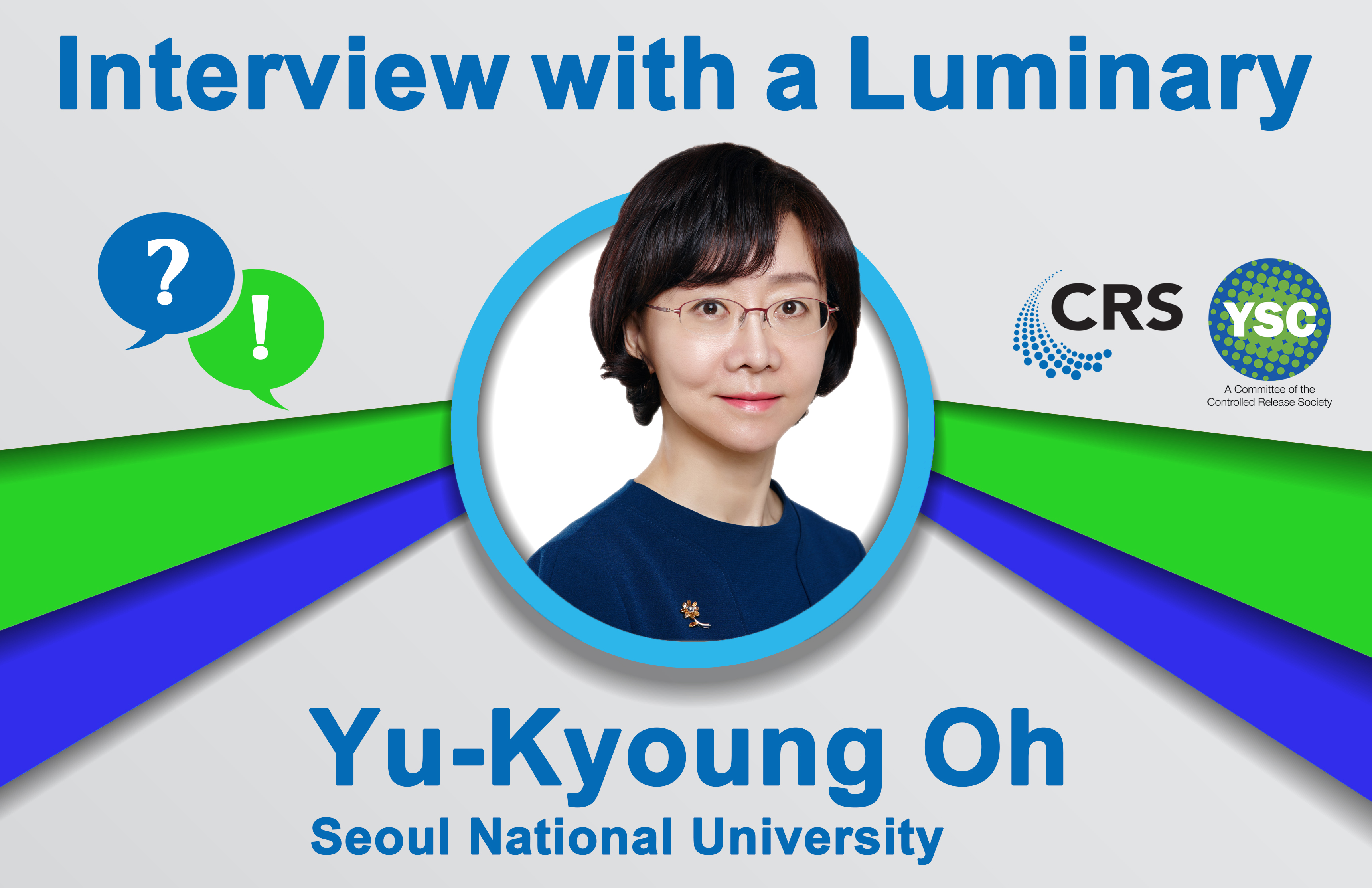
Dr. Yu-Kyoung Oh is a Professor of the College of Pharmacy at Seoul National University, Republic of Korea. She has been a fellow of the Korean Academy Science and Technology since 2014. She received Bachelor’s and Master’s degrees from Seoul National University, and a Ph.D. from the State University of New York at Buffalo in 1994. She obtained postdoctoral training at Harvard Medical School (1994-1996). Her research interests focus on the delivery of chemical and nucleic acid-based drugs using versatile nanobiomaterials. Professor Oh had served as an associate dean (2013-2017) of the College of Pharmacy at Seoul National University, and an executive director (2019-2020) of Seoul National University Hoam Faculty House.
She has published more than 210 SCI papers and received 26 patents (total citation: > 8,400). She has served as a Director-at-Large of the Controlled Release Society (New York, USA) since July 2020, and as a Vice President of the Korean Society of Pharmaceutical Sciences and Technology since 2019.
She is involved in the editorial activity for leading journals in the pharmaceutical field. She currently serves as a Deputy Editor-in-Chief of the Journal of Controlled Release, an Associate Editor for Asian Journal of Pharmaceutical Sciences, and a Review Editor for Drug Delivery and Translation Research. She is an Editorial Board Member of Advanced Drug Delivery Review and Acta Pharmaceutica Sinica B.
- What sparked your interest in science in general and drug delivery in particular?
Curiosity has led me to the path of science. Because of curiosity, I could not wait until the next day to see the results. I jumpstarted my design of the experiments and looked forward to seeing their outcomes.
Why drug delivery? I am a practical person. I was fascinated by the idea of increasing the quality of life of patients by developing better delivery systems. The drug delivery fields are an attractive milieu in which one can do science and have a high chance of clinical translation.
- Share a turning point or defining moment you experienced in your work as a scientist.
Formulating a hypothesis, testing the hypothesis, and sharing the results are three components of a scientist’s life. Until my postdoctoral training, I was immature in all three components. I still remember my excitement when my first paper as a corresponding author was accepted. Since then, I have continued practicing the three components of a scientist’s life in academia.
- Tell us about the exciting ways in which your particular field is progressing.
I have focused my research on the delivery of chemical or nucleic acid-based anticancer drugs. The existing delivery systems for anticancer drugs can enable the drugs to slow tumor growth but not completely ablate the tumors. Recently, my research has shifted more to delivery systems that are capable of igniting the body’s endogenous immune power, which could conceivably prevent the recurrence of tumors.
- What is the best piece of professional advice you have received and from whom?
The best advice I ever received was from Prof. Ick Chan Kwon, the immediate past regional editor of JCR. He quoted the physicist Steven Hawking in telling me that “Intelligence is the ability to adapt to change”.
- Would you change anything about your career path if you could start over?
This is a very interesting question. Sometimes I ask myself this question. I am curious about both experimental data and people’s lives, and sometimes daydream that I am working as a social scientist.
- What advice would you give to someone who is starting their scientific career?
I would say that resilience and collaboration are two building blocks of a scientific career. As most of us will agree and/or have experienced, scientists often get frustrating data that do not support their cherished hypotheses. As a principal scientist, this sort of frustration is like part of my regular meals. Resilience makes you keep moving forward. Collaboration is the other key part. Networking with colleagues not only allows you to share and improve your ideas—but it also allows for mutual sympathy and advice, which are enjoyable parts of doing science.
- What do you enjoy doing outside of the lab? What are your hobbies/interests?
I like to travel to places with nice ocean views. Life is like coping with the continuous waves of the ocean. Some waves are gentle, while others are too heavy to cope with. I feel that my mental batteries are recharged when I spend time regarding the ocean waves.


